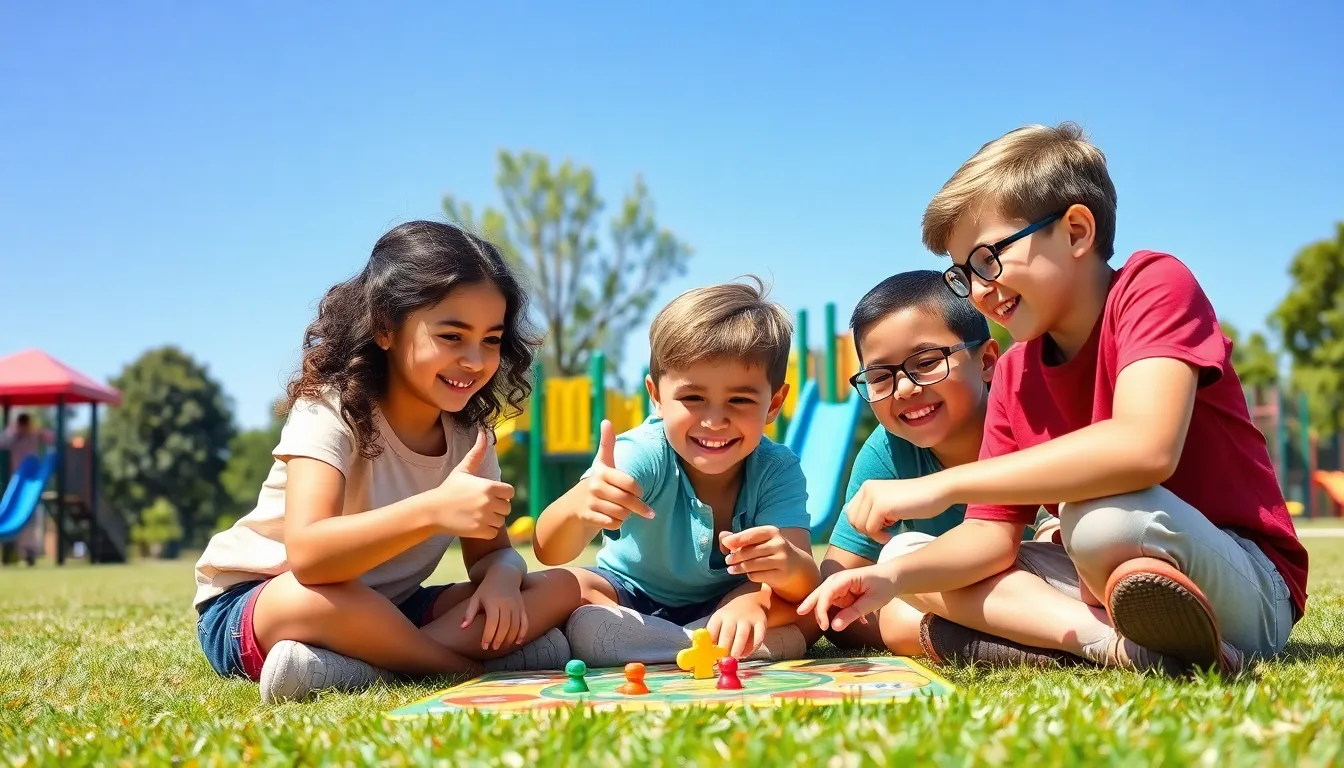In a world where kids juggle school, sports, and social media like circus performers, mental health often takes a backseat. But just like a car needs a tune-up, kids need a little emotional maintenance too. Enter the mental health center for kids—think of it as a superhero headquarters, where young minds can recharge, learn, and grow without the pressure of adult expectations.
Table of Contents
ToggleImportance Of Mental Health Centers For Kids
Mental health centers for kids play a crucial role in promoting emotional well-being. They provide safe spaces where children can express feelings without judgment. Access to trained professionals ensures kids receive appropriate guidance during difficult times.
Programs tailored for various age groups address unique developmental needs. These centers often engage children through play, art, and group activities, fostering both creativity and connection. Emotional support services reduce the stigma surrounding mental health, encouraging open conversations among peers.
Research shows that early intervention significantly improves long-term psychological outcomes. Statistics indicate that 20% of children experience mental health disorders by age 18, underlining the necessity of specialized care. Therapeutic options range from talk therapy to cognitive-behavioral techniques, allowing for a comprehensive, individualized approach.
Collaboration with parents enhances treatment effectiveness. Parents receive education and resources, promoting understanding of their child’s needs. Following a partnership model, these centers encourage family involvement in therapy, helping create supportive home environments.
Community outreach programs also raise awareness about mental health. Workshops and seminars inform families about resources available, empowering parents to seek help when necessary. Overall, mental health centers for kids are vital in building a foundation for lifelong emotional resilience.
Types Of Services Offered

Mental health centers for kids provide a range of services tailored to support children’s emotional needs. These services ensure children receive the necessary care in a nurturing environment.
Individual Therapy
Individual therapy offers children personalized attention from trained professionals. Sessions typically focus on specific challenges such as anxiety, depression, and stress. Techniques like cognitive-behavioral therapy help kids develop coping skills. Children engage in conversations that promote self-expression and emotional understanding. Progress tracking allows therapists to adjust strategies as needed, enhancing treatment effectiveness. Individual therapy often fosters a trusting relationship, encouraging children to open up about their feelings.
Group Therapy
Group therapy allows children to interact with peers facing similar challenges. Engaging in shared experiences can reduce feelings of isolation. Facilitators guide discussions that promote empathy and connection. Activities may include art projects or games that foster teamwork and communication. Through group dynamics, kids learn valuable social skills and new coping strategies. Group therapy also encourages mutual support, providing a platform for friendship and understanding.
Family Counseling
Family counseling strengthens the bonds between parents and children by addressing family dynamics. Therapists guide discussions that encourage open communication among family members. During sessions, families explore issues affecting their child’s mental health together. Strategies to improve understanding and support are shared, empowering parents to address their child’s emotional needs. Education about mental health topics helps families build healthier relationships. Engaging the entire family in the process enhances the overall effectiveness of treatment.
Choosing The Right Mental Health Center
Selecting the ideal mental health center for children involves careful consideration. Prioritizing specific factors ensures that the chosen facility meets the child’s unique needs.
Factors To Consider
Evaluate the center’s credentials. Accreditation and licensure reflect adherence to professional standards. Assess staff qualifications; licensed therapists and counselors offer professional guidance. Review the range of available services. Centers that provide various therapeutic options can cater to different mental health challenges. Consider the age-appropriate programs. These should promote engagement through play, art, or group activities. Analyze location and accessibility. A convenient facility eases transportation and encourages regular attendance.
Questions To Ask
Inquire about staff-to-child ratios. High ratios may indicate inadequate attention for each child. Ask about the center’s approach to treatment. Evidence-based practices lead to constructive outcomes. Explore the types of therapies available. Individual, group, and family therapy options enhance support. Discuss how family involvement is encouraged. Centers that engage families foster greater understanding of mental health. Finally, request information about aftercare support. This sustains progress made during treatment and promotes long-term wellness.
Success Stories And Testimonials
Parents frequently share positive experiences from their children’s time at mental health centers. They report significant improvements in emotional well-being and social skills. Children often express feeling heard and understood, which boosts their confidence.
One mother recounted her ten-year-old daughter’s journey. After participating in group therapy, her daughter formed friendships and discovered ways to handle anxiety. Feedback from the center indicated that her child actively engaged during activities, helping her open up about emotions.
Another parent highlighted how individualized therapy reshaped their child’s perspective. They noted that targeted strategies focused on coping mechanisms, making daily challenges more manageable. Positive changes were evident not only at the center but also at home and school.
Testimonials often showcase the effectiveness of community outreach programs. One father described attending workshops that increased his understanding of mental health. He felt equipped to support his child better, leading to a notable change in their home environment.
Success stories frequently include collaborative efforts with trained professionals. Many families appreciate how therapists involve them in the treatment process. One family even mentioned that family counseling sessions improved communication, allowing them to tackle challenges together.
Data support these testimonials. Research indicates early intervention can improve long-term outcomes. When families participate actively in the treatment journey, children demonstrate enhanced emotional resilience.
Parents consistently emphasize the welcoming atmosphere of mental health centers for kids. They appreciate the safe spaces provided for expression. Many youngsters report feeling relaxed and more willing to share their experiences during therapy sessions.
Mental health centers for kids serve as essential resources in nurturing emotional well-being. By providing safe environments for children to express themselves they pave the way for healthier coping strategies and stronger social connections. With access to trained professionals and tailored programs these centers empower kids to navigate their feelings and build resilience.
The positive impact of early intervention cannot be overstated. Children who receive support often experience significant improvements in their emotional health and social skills. As parents explore options for their children it’s crucial to prioritize centers that offer comprehensive care and foster family involvement.
Investing in mental health care for children not only benefits them today but also lays the groundwork for a brighter future. The journey toward emotional resilience starts with the right support at a mental health center designed specifically for kids.




